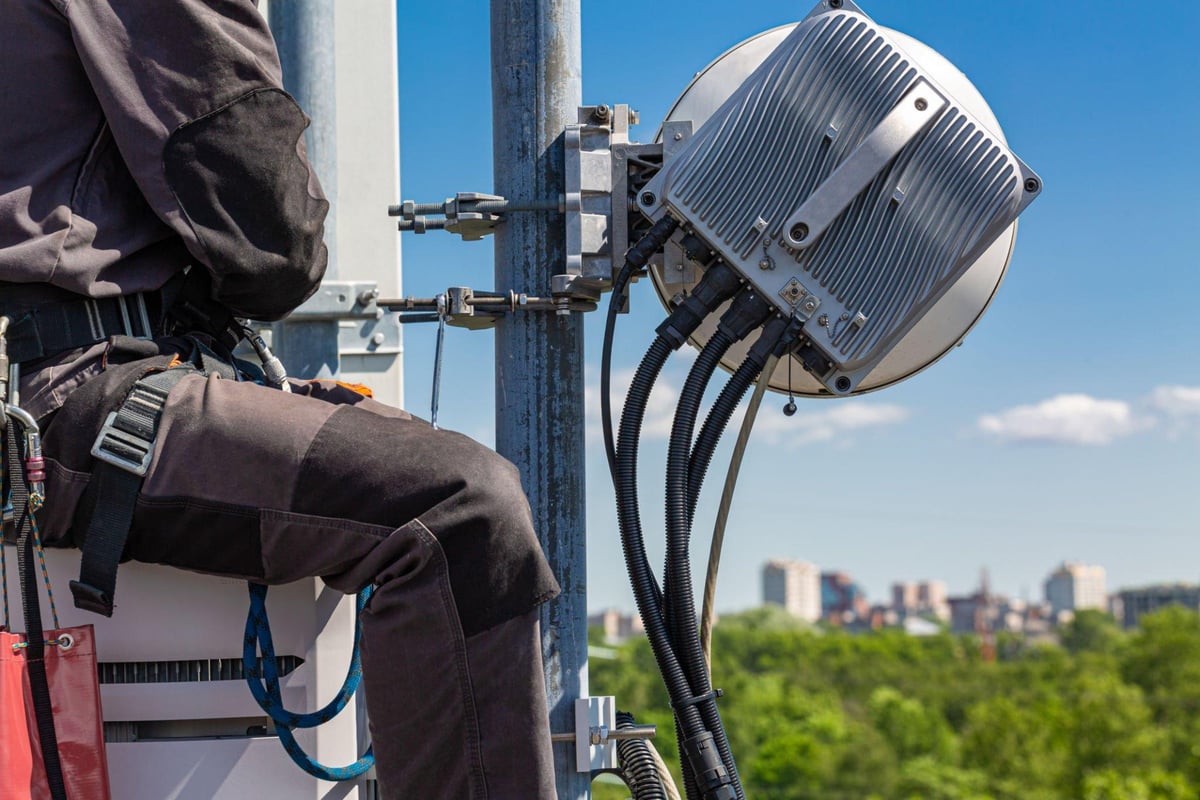
Financial aid (may be available)

Financial aid (may be available)

No cost info

Financial aid (may be available)
If you're seeking a dynamic and challenging career in the telecommunications industry, becoming a Tower Technician in San Diego might be the perfect choice. This blog post will help you understand what it entails to be a Tower Technician, the necessary training requirements, what to look for in a class, and more. Let's delve into the world of Tower Technicians.

A tower technician, also known as a cell tower technician, is a professional who repairs and maintains communication towers. These individuals are responsible for ensuring that equipment on cell towers is functioning correctly, which includes tasks such as installing new technology, running diagnostic tests, and performing repairs. The job involves climbing towers to install, maintain, or repair equipment, making it a physically demanding role.
Becoming a Tower Technician does not require a degree, but specialized training is necessary. This training can be acquired through various programs that offer hands-on instruction in areas such as safety protocols, equipment maintenance, and wireless technology.
The training for a Tower Technician includes:
Safety Training: This covers the essential safety procedures for tower climbing, rescue techniques, and hazard identification.
Equipment Training: This involves learning about the different types of equipment that a tower technician might encounter, including antennas, transmitters, and cables.
Technology Training: This component of training focuses on the technology that tower technicians work with, such as cellular networks and wireless technology.
When choosing a Tower Technician class, there are several factors to consider. Look for classes that offer comprehensive training in the areas mentioned above. Additionally, a class that provides hands-on experience will be beneficial as it gives you a practical understanding of the job.
Furthermore, consider classes that offer job placement assistance or have connections with local employers. This will make transitioning from training to employment much smoother.
In a Tower Technician class, you can expect a mix of classroom instruction and hands-on training. You'll learn about the basics of telecommunications, safety protocols, and the use of tools and equipment.
You'll also spend time practicing climbing techniques and gaining practical experience with the types of tasks you'll be doing on the job. This includes installing and repairing equipment, running diagnostic tests, and troubleshooting network issues.
After completing your training, the next step is to earn your certification. This typically involves passing a written exam that covers the topics you've learned during your training. Once you've passed this exam, you'll be a certified Tower Technician, ready to start your career in the telecommunications industry.
Finding a job as a Tower Technician can be straightforward if you know where to look. Job boards, company websites, and networking events are all excellent resources. Remember, many training programs also offer job placement assistance, which can be a valuable resource in your job search.
After becoming a Tower Technician, you might consider additional training to further your career. For example, you might pursue courses in advanced telecommunications technology, management, or even a related field like electrical engineering. Additional certifications can also make you more appealing to employers and open up more job opportunities.
Aside from the technical skills learned in training, there are additional skills that are beneficial for a Tower Technician:
Physical Fitness: The job involves climbing tall towers, so being in good physical shape is crucial.
Attention to Detail: Technicians need to be able to identify issues with equipment and carry out repairs accurately.
Problem-Solving Skills: Technicians often need to troubleshoot issues and find solutions quickly.
The demand for Tower Technicians is expected to grow, particularly as new technologies continue to be developed. With additional training and experience, a Tower Technician could advance to a supervisory or management role.
Working as a Tower Technician comes with certain risks, particularly related to working at heights. Therefore, understanding and following safety protocols is crucial. This includes using safety equipment correctly, following procedures for climbing and descending towers, and knowing what to do in case of an emergency.
Becoming a Tower Technician can be a rewarding career for those who enjoy working with technology and don't mind heights. While the job can be physically demanding, the satisfaction of ensuring communication networks are functioning correctly can make it worth it. Remember, the right training is crucial to your success in this field. Platforms like Dreambound can be valuable resources in finding the right training program for you.
If you're interested in exploring other vocational training opportunities in California, check out these articles on becoming a HVAC Technician or a Truck Driver.
Explore Dreambound's in-depth guides, each shedding light on the unique requirements and challenges in cities across the US. For more insights, be sure to check out our other guides.
Contemplating a transition in your career or exploring various professional paths? Dreambound has written many guides to help you in making informed decisions. Here are a few:
Dreambound's platform allows prospective students to find the right educational program for them through searching, filtering, and connecting with our extensive selection of career & technical education partners.
Dreambound has over 70 programs across healthcare, technology, business, and industrial trades. This includes programs such as Medical Billing, Cybersecurity, and welding.
Some of our schools offer financial aid for those who qualify. Many others offer payment plans, where you can pay the cost of class over time.
Yes, Dreambound offers many online programs. On Dreambound's search, you can filter by online, in-person, and hybrid (part online, part in-person).
Dreambound is completely free for you to use! We are supported by schools and organizations who pay to advertise on our website, so we can offer all of our career resources for free.